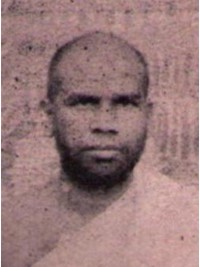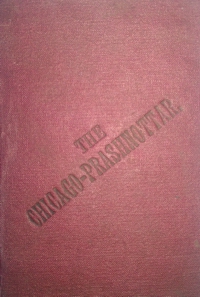70. Question:
Your argument about a dead man getting alive is improper. Although the ailments which vitiate the body at the time of death disappear, the vitiating effect which they create in the body do not disappear just as the effect caused by fire in the wood never disappears although the fire extinguished.
Answer:
This is not right. Changes are of 2 kinds. One kind of change altogether disappears and the other does not. The second kind of change is caused by the fire in the wood when it is burnt and the first kind of change is caused by it, in the gold when it is burnt. The humours of wind &c. are such as disappear according to the science of medicine. If they do not disappear then the science of medicine is wrong. Moreover it cannot be that ailments which disappear while the man is alive do not disappear when he is dead. A change cannot have two aspects in the same place.
71. Question:
Diseases are of two kinds - curable and incurable. The curable diseases are removed by treatment but thè incurable diseases never disappear. Does it not show that there are two aspects of diseases?
Answer:
This too is not right. According to you there can be no incurable disease. The incurability of the disease means the extinction of life. During an ordinary disease a man sometimes dies by the quackery of a physician and sometimes he does not die. The diseases which are the result of evil actions of man are not cured by any medicines. Both these diseases are to be found only in the religions of those who believe in the teachings of the Lord but not in the religion of those like you who believe only in the elements. Sometimes a medicine is efficacious in curing the effects of ailments but sometime in the absence of a physician an ordinary disease becomes incurable. Owing to the absence of a physician and medicine, a disease is aggravated and ends only in the death of a man. Sometimes a man suddenly dies as soon as his ailments disappear and sometimes a man does not die though seriously afflicted with virulent diseases.
These things can have no place in your creed. According to our doctrine, a man lives his fixed age though afflicted with serious diseases but when his fixed age has reached its limit he dies though there are no diseases ailing him. The body is not therefore the cause of consciousness. There is another point. Do you believe the body to be a concomitant or material cause of consciousness or knowledge? If you believe in the former, we too consider the body to be the means of death and to some extent the cause of knowledge. If you believe in the latter, the position is wrong. A material cause is that which communicates its changes to its effects just as the earth and the pot. When the body is affected, the sense of feeling is not affected. On the other hand, the mind is affected a good deal by fear, anxiety, grief &c even when the body is all right. The body is not therefore the material cause of the sense of feeling.
This statement also disposes of the argument that the life of the parents is the material cause of the life of the child. When the parents are affected by ailments, the children are not similarly affected. But a material cause always follows its effect and cannot be separated from it just as the earth and the pot. If the life of the parents is inseparable from the life of the child, the latter's life should have a similar relation. This will show that the qualities or effects of elemental are not feelings. It also proves that there is a soul. Further information regarding the creed of the Chārvākās is to be found in such works as Sainmati-tarka, Syādvādar-atnākara &c.
72. Question:
What do the old Shastras say with regard to the social and friendly dealings of human beings among themselves?
Answer:
A man should have friendly feelings towards human beings, do good to them, assist them in trouble, preach true Law (truth) if he knows, should not take pride in his 'high' caste, should be hospitable to them by giving food etc.
73. Question:
What is in fact the relation of man with God?
Answer:
The relation is that of an instructor and the instructed.
 Shrimat Vijyasandsuri
Shrimat Vijyasandsuri
